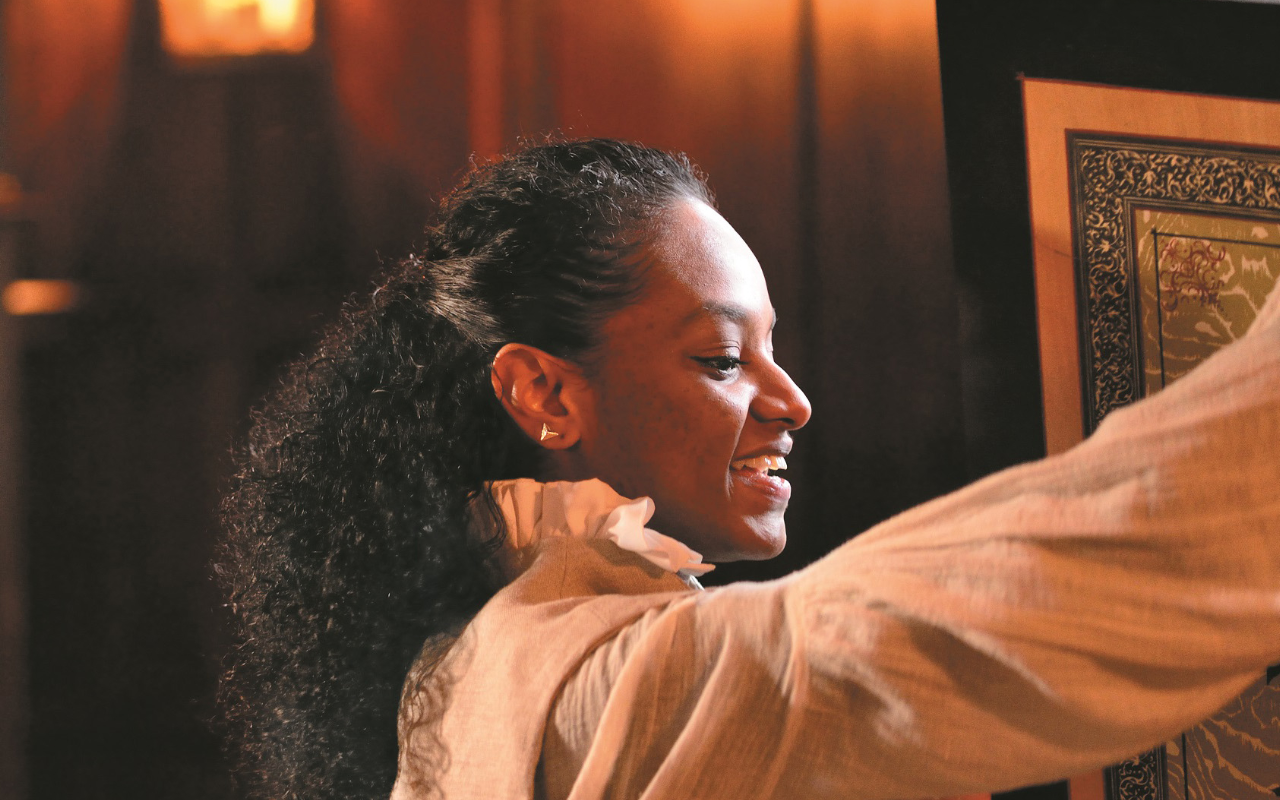
Photo: Creative & Cultural Skills
Creative apprenticeships drop to lowest level in a decade
Sharp fall in creative apprenticeships prompts call for a "radical rethink" of career routes into the sector.
The number of people starting apprenticeships within the arts and culture sector fell by nearly 50% last year to its lowest level in nearly a decade, figures released by the Department for Education (DfE) show.
During 2020/21 there were 120 starts on creative, arts and entertainment apprenticeships compared with 230 in 2019/20 – a fall of 47.8%. In 2014/15 the figure stood at 450, having risen from 350 in 2012/13.
Meanwhile, apprenticeships related to libraries, archives, museums and other cultural activities also fell by more than a third (34.4%) between 2019/20 (320 starts) and 2020/21 (230 starts), with the figure having stood at 470 in 2012/13.
READ MORE:
Apprenticeships in motion picture, video and television programme production, sound recording and music publishing activities rose slightly from 170 in 2019/20 to 190 in 2020/21, but were still below the level recorded in 2018/19 of 380.
The DfE said that the 48% fall in overall apprenticeship starts since 2018/19 within the broader area of arts and entertainment, prior to the impact of the pandemic, represented the largest drop of any sector. It was followed by the accommodation and catering sector (down 39%) and manufacturing (down by 35%).
It said that these industry sectors were all more likely to be "shut down", adding that they all traditionally have the highest proportions of starts by apprentices aged under 19 who will have been "disproportionately impacted by the uncertainty and shutdowns of the Covid pandemic".
Challenging period
Kath Geraghty, Head of Workforce Development at the National Theatre and Vice-Chair of the IfATE Creative and Design Route Panel said that with the performance industry going through a challenging period it is "more important than ever that we play our part to support new talent into the industries".
"New apprenticeships in the sector were negatively impacted by the pandemic as theatres were unable to recruit new apprentices because of building closures, redundancies and pressure on shows," she said.
"We are now facing into a skills gap so apprenticeships are a vital tool in rebuilding and upskilling our workforce."
Geraghty said there are several new apprenticeships within the sector that are very close to being ready to launch, including costume performance technician, and scenic artist, as well as a recently launched £7m pilot programme on flexible apprenticeships previously announced by Chancellor Rishi Sunak, which aims to reach sectors that frequently offer freelance or shorter term roles.
Meanwhile, at least £6m has been committed for Creative Kickstart, a sub-programme of the Department for Work and Pensions' broader £2bn Kickstart scheme which covers the costs of six-month work placements of up to 25 hours a week, although this programme has now closed to new applicants.
"It is really important that employers and learning providers engage with these initiatives in order to deliver the skilled workforce we need and maintain routes into the industry," Geraghty said.
"Apprenticeships can open up creative careers and opportunities to young people who might not have otherwise considered a career in the creative industry or be aware of the multitude of roles involved in theatre.
"They provide the opportunity to learn key skills and gain practical experience for a creative career, as well as transferable skills relevant to any future career path. Young people need to see themselves represented in the theatre industry, in the people making the work, on the stage and in the stories we tell."
'Radical thinking'
Anthony Skates, Partnership Manager for the West Midlands and South West of England at Creative & Cultural Skills, said that while the pandemic was responsible for a significant drop in starts in the sector, the causes of the longer-term decline need to be addressed.
"As a sector we are still consistently recruiting at a graduate level. Over the last 30 or 40 years, along with other sectors, we have increasingly interpreted that having a degree is your entry level qualification," he said.
"We need to think quite radically about that in terms of our recruitment processes, the jobs we are recruiting to and the people we are recruiting."
Skates said that although employers often take the view that they "need someone who can do it now", even degree-level candidates are only typically fully-competent within a year or two.
"A lot of people with a degree haven't worked in the sector before and it is exactly the same with apprenticeships," he said.
He added that there are clear advantages for employers in terms of hiring apprentices, with 80% likely to stay with the employer over the long-term.
"There are lots of advantages," he said. "It's a broad based experience. The person is learning the job within your organisation, so you can tailor the learning programme to your very specific needs as an organisation, designing a programme of learning in partnership with the learning provider."
"If we are recruiting for an interpretation officer in a museum or an archive, does that person actually need a degree in history? Do they need a degree in communications? Do they need a degree in English?
"Or do they need a really strong interest in that subject and do we need to think about recruiting for a Level 3 archivist or a specific apprenticeship for a cultural learning and participation officer? Do we need someone from a degree background or can we 'grow our own'?"
Join the Discussion
You must be logged in to post a comment.